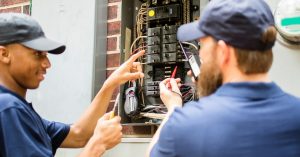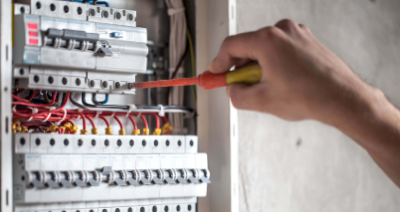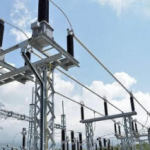An industrial building requires a lot of power for machinery, tools and systems. Since electricity is common in industrial work, it’s easy to forget the potential dangers of using it.
Keeping your workers safe when working with electricity is crucial, so it pays to stay up to date on electrical safety equipment and practices.
Why Electrical Safety Is Important?
Electrical safety matters because electricity is powerful and potentially harmful. Mishandled electricity can cause serious injury or death, so keeping electricians safe at work requires use of the proper techniques. Make sure your employees have electrical safety training. This knowledge enables workers to make smart decisions when working with electricity. Training also prevents incident-related costs for your business. It’s an employer’s responsibility to train their workers. If insufficient training causes an accident, the employer could be held accountable, so be sure your workers are familiar with these key electrical safety tips for industrial work:
Exercise caution: Always use caution when working with electrical gear. Assume that you’re working with live, energized wires and act accordingly.
Check for electrical current: Before touching a wire or metal surface, use a multimeter to see if it has an electrical current.
Secure electrical cords: Tape extension cords around the work site to the floor or wall — hanging cords can fall and hurt someone, and laying them loosely can be a tripping hazard.
Be mindful of conductive materials: Know which materials are conductive and don’t use them around high-voltage equipment.
Inspect cords and electrical connections: Regularly examine cords and connections like outlets and plugs for signs of wear and damage. If you find issues, replace the component immediately.
Wear personal protective equipment (PPE): Wear PPE like safety glasses, insulated gloves and a hard hat when using electrical items.
Electrical safety isn’t just a checklist—it’s a critical practise because electricity is powerful and potentially dangerous. Improper handling can lead to injuries or even death.
If you’re an electrician, following safety procedures is a must. And if you’re employing electricians, providing them with the right training is equally important. Proper training ensures that your employees can handle electrical issues safely, which not only protects them but also saves you from injury-related costs down the road.
Following electrical safety guidelines offers several benefits beyond just safety. These measures help ensure that the electrical system itself remains in good working condition for longer. Let’s explore how adhering to safety protocols can benefit you.
Maintain Safety
The primary benefit of following safety guidelines is, of course, safety. Electrical systems, while convenient, can be extremely dangerous if mishandled.
Taking safety measures significantly reduces the risk of electrocution, fires, and other hazards. Plus, by protecting your equipment from damage, you extend its lifespan, saving yourself from costly replacements or repairs in the future.Cost-Effectiveness
One of the biggest perks of prioritising safety is cost-effectiveness. Electrical fires, system failures, and appliance outages can be expensive. However, by adhering to proper protocols, you can prevent most major issues, reducing the need for costly replacements.
Better Efficiency
Electrical safety guidelines aren’t just about avoiding danger—they also help you get the most out of your appliances. By taking care of your devices and systems, you ensure they operate efficiently and last longer. Routine maintenance keeps your electrical system running smoothly, preventing unexpected failures and hazardous situations. Plus, efficient appliances consume less energy, making your experience both safer and more economical.
How To Keep Your Electrical System Safe?

Aside from following safety guidelines, regular maintenance is key to keeping everything running smoothly. Here are some essential tips for maintaining your electrical system:
Frequent Blown Fuses and Trips: If you constantly experience blown fuses and trips, it’s a sign that something’s wrong with your electrical system. Ignoring these issues could lead to costly damage, so it’s best to consult a qualified professional as soon as possible.
Get the Appropriate Wiring: Never use indoor electrical cables and equipment outdoors. Outdoor environments are harsh, and indoor wiring isn’t designed to withstand them. Using the wrong equipment can lead to serious hazards.
Keep Your Wiring Organised: Avoid bending cables around furniture or hiding them under carpets. Not only can this create a tripping hazard, but it can also lead to an electrical fire. Always keep your wiring visible and neatly organised.
Replace Frayed Wiring: If you notice any frayed wiring in your electrical system or appliances, replace it entirely rather than trying to make repairs. Frayed wires are a significant fire risk, and replacing them is the safest option.
Don’t Force Plugs: If a plug doesn’t fit into a socket, don’t force it. Forcing a plug can damage the socket and the device. Always use plugs that are appropriate for your sockets.
Upgrade Your Sockets: If your sockets are outdated or loose, it’s time for an upgrade. Sticking with old systems past their lifespan can damage your electrical system and pose a safety risk.
Never Overload Systems: Overloading is a major cause of electrical problems. Make sure you understand the power capacity of your sockets and avoid plugging high-voltage appliances into low-voltage sockets
Understand Electrical Capacity: Different electrical systems have different capacities, often depending on their age. Older systems typically have lower capacities, which might not be sufficient for modern appliances. If you live in an older home, consider upgrading your system to prevent damage.
How To Maintain Electrical Safety At Home?
As a homeowner, you don’t need to be an expert to keep your electrical system in check. While you might not know all the technical aspects, there are plenty of simple yet effective ways to keep your electronics in good shape and maintain safety. Let’s explore some practical electrical safety tips that can make a big difference.


